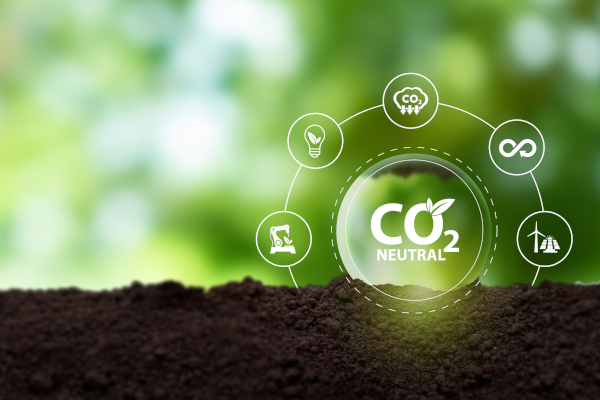New research from Moody’s Investors Service finds that the use of carbon offsets in corporate carbon transition strategies can pose financial and reputational risks if they are not applied as part of a credible, science-based approach.
A carbon offset is a reduction, avoidance or removal of CO2 or other greenhouse gas emissions made with the intention of compensating for emissions elsewhere. These projects include initiatives like landfill gas capture, forest restoration, or mass tree planting.
While many companies depend solely on offsets to reduce their emissions, to have a real effect on climate change, companies must also apply solutions across their supply chain to reduce their production of carbon emissions, the report noted.
Not only that, but the report found that improperly using carbon offsets opens your supply chain up to a range of credit risks such as reputational, regulatory, and litigation risks or the risk of technological disruption. Inadequate use of offsets can include:
• Ambiguous or exaggerated decarbonization claims
• Inadequate vetting of carbon credits
• Excessive reliance on offsets as a transition risk management strategy
A class-action lawsuit filed against Delta Airlines in May is one example of the legal risks of ambiguous use of exaggerated claims. The lawsuit claims that Delta’s promotion of itself as carbon neutral was “false and misleading” because it relied on carbon offsets. Delta, the world’s biggest all-time buyer of offsets, has since announced a strategic shift in its climate approach, saying that it would prioritize emissions reductions rather than rely on carbon offsets to achieve its decarbonization goals.
Characteristics of high-quality offsets
Though carbon offsets can play a role in financing investments that are needed to prevent global warming and achieve global net-zero targets, many companies struggle to identify high-quality credits. The report from Moody’s identified the following characteristics of quality credits:
• Additionality: The emissions reduction, avoidance or removal must be a direct result of the implemented activities and would not have occurred without the financial support of the sale of the offset credits.
• Permanence: The emissions reduction, avoidance or removal should be long-lasting and not reversible, ensuring that the carbon remains sequestered and does not reenter the atmosphere.
• Double counting: Offset credits cannot be claimed by multiple entities simultaneously, preventing the same emissions reduction from being counted more than once.
• Leakage: The project should not indirectly lead to higher emissions elsewhere.
• Quantifiable/measurable/verifiable: The associated emissions reduction, avoidance or removal should be quantifiable and verifiable.
• Does no harm: The project should not have a negative impact on other environmental or societal factors, such as equality and biodiversity, ensuring that the offsetting activities do not inadvertently cause harm elsewhere.
Reliance on offsets as a risk management tool heightens financial risk
The report from Moody’s also found that companies face significant financial risks as they navigate the transition to a low-carbon economy. These risks include potential regulatory changes, such as carbon pricing or stricter emissions regulations, which can increase costs and weigh on profitability. Plus, companies heavily reliant on fossil fuels may experience asset devaluation or stranding as the demand for carbon-intensive products declines.
Looking long term, a plan that relies solely on offsets faces the financial uncertainty of future price credits, especially as standards and regulations in the carbon market evolve.
The report said companies can take measures to manage these risks by prioritizing efforts to cuts emissions within their value chain, diversifying their product mix, and investing in measures that directly reduce their carbon footprint.
SC
MR


More Sustainability
- Few executives believe their supply chains can respond quickly to disruptions
- Investor expectations influencing supply chain decision-making
- 40% of procurement leaders ignoring sustainability, study reveals
- How to Create Real Retailer-Brand Loyalty
- Rethinking Strategy for a Circular World
- Supply Chain Sustainability Pressures Persist
- More Sustainability
Latest Podcast

 Explore
Explore
Topics
Business Management News
- Few executives believe their supply chains can respond quickly to disruptions
- Technology’s role in mending supply chain fragility after recent disruptions
- Survey reveals strategies for addressing supply chain, logistics labor shortages
- How CPG brands can deliver on supplier diversity promises
- How S&OP provides the answer to in-demand products
- AI, virtual reality is bringing experiential learning into the modern age
- More Business Management
Latest Business Management Resources

Subscribe

Supply Chain Management Review delivers the best industry content.

Editors’ Picks




